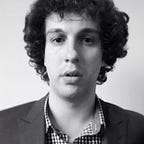Why The Travel Pillow Is The Key To Solving The World’s Biggest Problems
By Chris Stokel-Walker
The travel pillow goes a long way back, way before you and me, and way before Vladimir Putin. It was in 1929, a quarter century after the Wright brothers first took to the air, that New Yorker Elizabeth Millson first patented the U-shaped pillow.
Originally intended as a way to help people relax in the bath, these days the neck pillow is a fixture on long-haul flights, and has evolved way beyond the simple inflatable rubber ring. Now there are foam pillows, hoodie pillows, and even neck warmers that look warm enough to withstand a Siberian winter.
The Hoodie Pillow might not be very statesmanlike, but even the most rudimentary option could have helped Putin when he cried off the final day of the G20 summit in Australia: Faced with a two-leg, 18-hour flight from Brisbane back to Moscow, he claimed fatigue and said he needed to leave early to catch “four to five hours sleep.”
There’s no word if the Russian state’s pimped-out Ilyushin 96–30—the Kremlin’s equivalent of Air Force One—offers a full SkyMall catalog of sleep aids. But it does have a private bedroom where, of course, the president can lay his head and grab a few moments rest. So was exhaustion just a convenient excuse to avoid awkward questions? Probably. But here’s an inconvenient truth: Putin probably is very, very tired.
World leaders jet around the world more than ever, living in constant haze of jet lag, expected to pick up and go as soon as they hit the tarmac. Hillary Clinton clocked nearly a million miles during her four years as Secretary of State. Some people are biologically wired for sleeplessness: Margaret Thatcher famously survived on just four hours’ sleep a night. But most need significantly more rest, which makes this kind of big political meeting… well, almost impossible. It’s hard enough to get a group of world leaders in a room, let alone massage all those egos as you try to broker peace, sanctions, or find a way to save the world. Now imagine that half of them think it’s 3 a.m. Skype, anyone?
Photo source: Peter Dazeley (Getty)
Follow Matter on Twitter | Like us on Facebook | Subscribe to our newsletter
